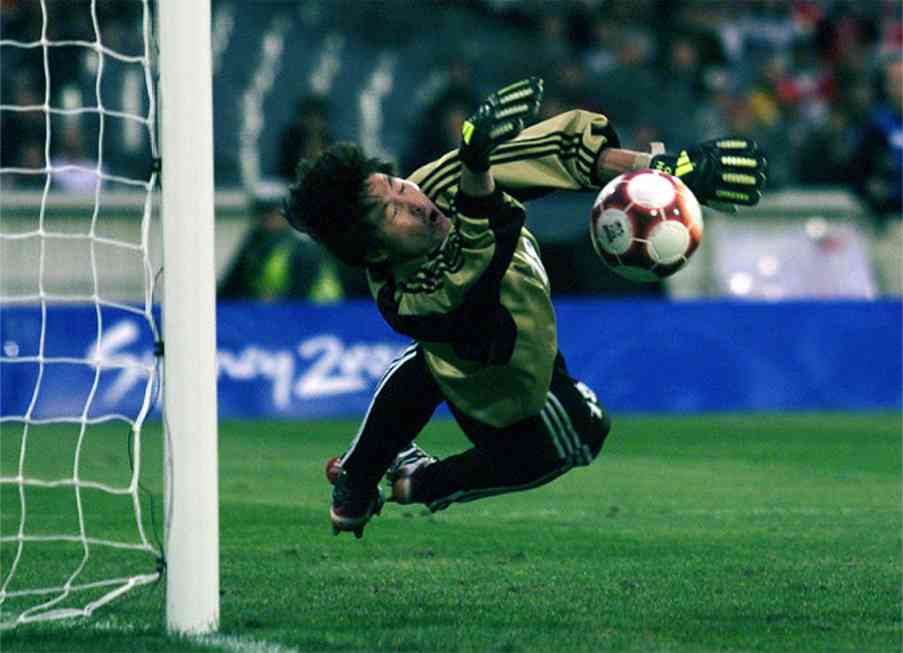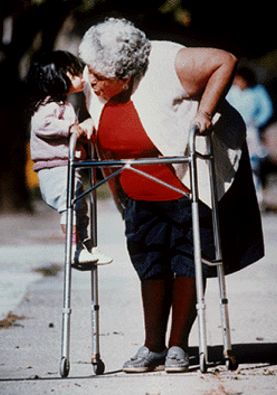Karen Borchers

The following is an interview with Karen T. Borchers, a photojournalist. Karen is a staff photojournalist at the Mercury News. Previously worked at the West Palm Beach, (Fl) Post and the Fredericksburg, (VA) Freelance Star. She received a Master of Arts degree in Visual Communication from Ohio University in 1980 and her Bachelor of Science in Photojournalism in 1979 from Bowling Green State University. She has a twin sister, Kathy, who is a photojournalist at the Providence Journal in Rhode Island.
Her Work
Her Bio
1. What is photojournalism?
Photojournalism is reporting the news in a visual medium, using a camera, as opposed to a computer and words. Photojournalists must also be good reporters as well and get basic facts to explain the pictures. It is a good rule to get the who, what why where information.
2. Tell why you have chosen a career in photojournalism?
I chose a career in photojournalism because I like to interact with people and I like being involved in world events and making a difference in people's lives.
3. Explain the history to how you became interested in photography/ photojournalism.
I became interested in photography at an early age, around 14. I first made Super 8 film movies with friends and took classes in still photography. Later, I was yearbook editor of the high school and college yearbooks and worked at the college newspaper.
4. How have you gone about obtaining an education in photojournalism?
I went to a university for 4 years and received a Bachelor of Science degree in photojournalism, graduating with honors.
I then went on to another university and received a Master of Arts in visual communications.
5. Discuss the jobs you've held on you way to where you are in your career now.
I had several summer internships during the summer at newspapers and gained valuable experience "on the job".
After obtaining my master's degree, I taught photojournalism classes at a university for a semester.
After that, I have worked full-time at three other newspapers, including the San Jose Mercury News, where I have worked now for 20 years.
6. What kind of time, emotional stress, and resources are required for a career in photojournalism.
Photojournalism is NOT just a job, and it is not so easy to just work 5 days a week, 40 hours. I am continually looking at things in my community and world that would make a good story or photograph.
It can be a stressful job, being on deadline, pressure to get the "right" photograph and the wear and tear on one's emotions when covering a sad event, such as a funeral or other tragedy. Resources required would be: you have to be aware and quick.
7. Tell about a time when you felt discouraged in your career.
Sometimes I feel discouraged in my job when I cover an event, such as a women's soccer game, and I have a lot of good images, but the photos don't get published on the sports front, and are buried inside.
8. Explain what you think is most rewarding, "pros," about a career as a photojournalist.
The most rewarding thing about a career in photojournalism is being able to experience so much of other people's lives and to sometimes help make a difference in their living situations.
9. What are a few of the bad aspects, "cons," of a career as a photojournalist?
Sometimes you are in danger on assignments. Just last week, Penni Gladstone, a photographer at the SF Chronicle, was photographing a priest accused of a crime. She was in the courtroom hallway. The priest yelled at her and shoved her camera in her face, cutting her below the eye and bruising her cheek.
10. What types of stories have you visually documented? Which type are your favorite and why?
 I have been to two Summer Olympics for the Mercury news, including the one in 2000 in Australia.
I have been to two Summer Olympics for the Mercury news, including the one in 2000 in Australia.
I have been sent to the Philippines to cover the political changes during the Marcos regime.
I have proposed a story and was sent to Bucharest, Romania, to cover the plight of abandoned children, living in the sewers there. (after the story and photos were published, our readers contributed thousands of dollars to the orphanage in Bucharest that was trying to help them).
11. Do you think a career in photojournalism can provide for you efficiently? For a family?
Yes, a career in photojournalism can provide for you and a family efficiently.
12. Do you feel that a career in photojournalism is a competitive one? What types of jobs are available?
Yes, photojournalism is a very competitive field. Jobs are being cut, and people are not being replaced, so there are fewer jobs every year. Digital cameras have made us more efficient and have saved time, so fewer photographers are needed. Newspapers can be very selective in their hiring, so a well-rounded and impressive portfolio, with good writing skills, and possibly being fluent in a second language can be a great advantage.
>
Home
>
Interviews
|
|